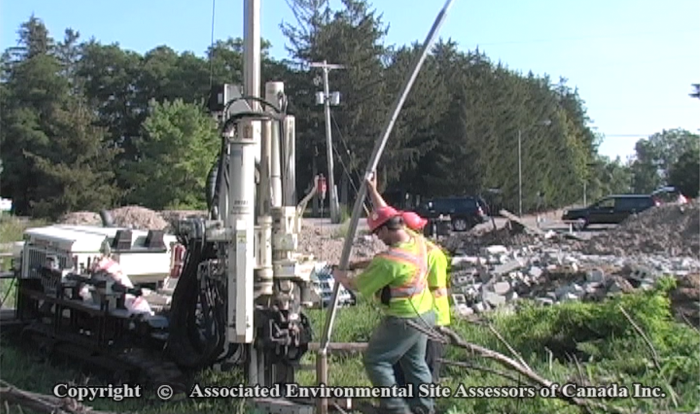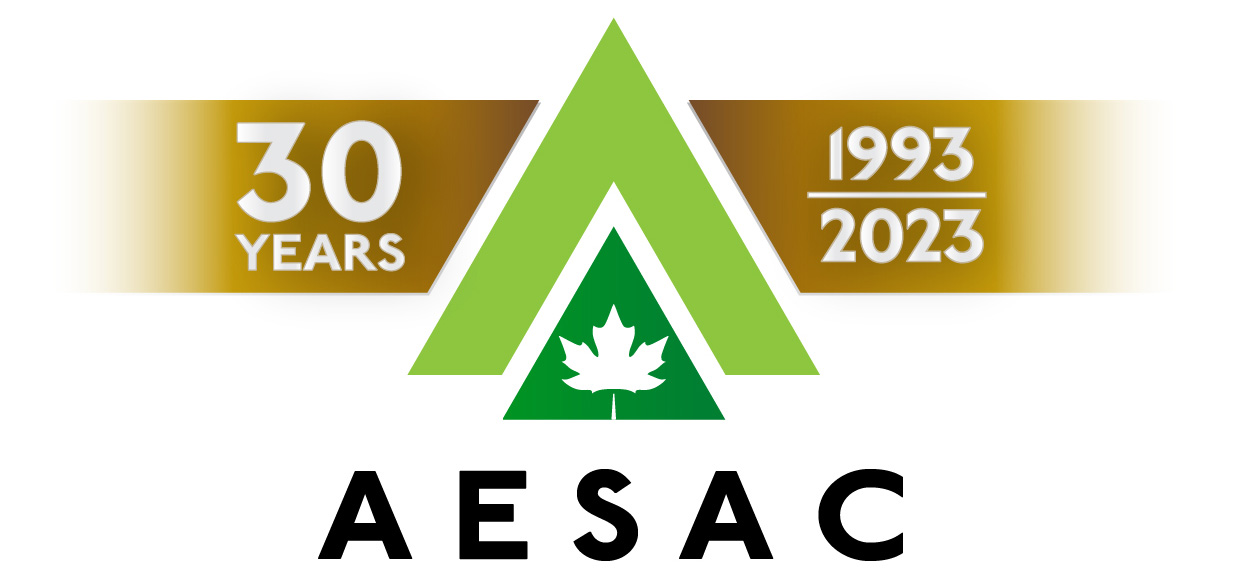- Home
- Training Courses
- Membership
- About Us
- Instructors Blog
- December 2023: All I Want For Christmas
- November 2023: ESA Report Reviews
- October 2023: Can AI Write an ESA Report?
- September 2023: Getting Paid... or Not
- August 2023: Take Me Back...
- July 2023: To Bid or Not To Bid
- June 2023: Selecting a Supplier
- April 2023: Phase 1 Problems, Part 3
- March 2023: Phase 1 Problems, Part 2
- February 2023: Phase 1 Problems, Part 1
- January 2023: Working Outside in Winter
- 2022 Blogs
- 2021 Blogs
- December 2021: Asbestos in your Home
- Sept 2021: Dirty Jars And Other Bad Things… Part 2
- August 2021: Dirty Jars And Other Bad Things… Part 1
- July 2021: How do you want that drawing to look? Part 2
- June 2021: How Did You Want That Drawing To Look? Part 1
- April 2021: So You Need a RSC... Part 2
- March 2021: So You Need a RSC... Part 1
- February 2021: What's In Your Toolbox? Part 2
- January 2021: What's In Your Toolbox? Part 1
- 2020 Blogs
- December 2020: A Day in the Life, Part 2
- November 2020: A Day in the Life, Part 1
- October 2020: Exploring Your Career Path
- September 2020: So You Want To Start Your Own Business - Part 2
- August 2020- So You Want to Start Your Own Business
- June 2020: Effective Communication
- May 2020: Tips For Working From Home
- April 2020: Conducting ESA’s During a Pandemic
- March 2020: It's Not Easy Being Green
- February 2020: Looking Ahead; Bold Predictions for the Next Decade
- January 2020: Looking Back; A Decade in Review
- 2019 Blogs
- 2018 Blogs
- 2017 Blogs
- 2016 Blogs
- 2015 Blogs
- Find an AESAC Member
Menu- Home
- Training Courses
- » Training Courses
- » Webinar Series
- » Calendar of Events
- » Course Registration
- » Course Instructors
- » Testimonials
- Membership
- » Become a Member
- » Certifications
- » Membership Search
- » Update Member Profile
- » Members Only
- » » Member Login
- » » Membership Renewal
- » » Create/Change Password
- » » CESA Certification Application
- About Us
- » About AESAC
- » Course Instructors
- » Contact Us
- Instructors Blog
- » December 2023: All I Want For Christmas
- » November 2023: ESA Report Reviews
- » October 2023: Can AI Write an ESA Report?
- » September 2023: Getting Paid... or Not
- » August 2023: Take Me Back...
- » July 2023: To Bid or Not To Bid
- » June 2023: Selecting a Supplier
- » April 2023: Phase 1 Problems, Part 3
- » March 2023: Phase 1 Problems, Part 2
- » February 2023: Phase 1 Problems, Part 1
- » January 2023: Working Outside in Winter
- » 2022 Blogs
- » » December 2022: Advice To My Younger Self
- » » October 2022: Pre-Purchase Due Diligence
- » » Sept 2022: Words Matter
- » » July 2022: Let Us Come To You
- » » April 2022: Due Diligence
- » » March 2022: Time Management
- » » February 2022: Spinning Augers... Part 2
- » » January 2022: Spinning Augers... Part 1
- » 2021 Blogs
- » » December 2021: Asbestos in your Home
- » » Sept 2021: Dirty Jars And Other Bad Things… Part 2
- » » August 2021: Dirty Jars And Other Bad Things… Part 1
- » » July 2021: How do you want that drawing to look? Part 2
- » » June 2021: How Did You Want That Drawing To Look? Part 1
- » » April 2021: So You Need a RSC... Part 2
- » » March 2021: So You Need a RSC... Part 1
- » » February 2021: What's In Your Toolbox? Part 2
- » » January 2021: What's In Your Toolbox? Part 1
- » 2020 Blogs
- » » December 2020: A Day in the Life, Part 2
- » » November 2020: A Day in the Life, Part 1
- » » October 2020: Exploring Your Career Path
- » » September 2020: So You Want To Start Your Own Business - Part 2
- » » August 2020- So You Want to Start Your Own Business
- » » June 2020: Effective Communication
- » » May 2020: Tips For Working From Home
- » » April 2020: Conducting ESA’s During a Pandemic
- » » March 2020: It's Not Easy Being Green
- » » February 2020: Looking Ahead; Bold Predictions for the Next Decade
- » » January 2020: Looking Back; A Decade in Review
- » 2019 Blogs
- » » November 2019
- » » September 2019
- » » August 2019
- » » July 2019
- » » May 2019
- » » March 2019
- » » February 2019
- » » January 2019
- » 2018 Blogs
- » » November 2018
- » » October 2018
- » » September 2018
- » » August 2018
- » » July 2018
- » » June 2018
- » » May 2018
- » » March 2018
- » » February 2018
- » » January 2018
- » 2017 Blogs
- » » April 2017
- » » June 2017
- » » August 2017
- » » September 2017
- » » December 2017
- » 2016 Blogs
- » » October 2016
- » » September 2016
- » » August 2016
- » » July 2016
- » » June 2016
- » » March 2016
- » » January 2016
- » » December 2016
- » » November 2016
- » 2015 Blogs
- » » April 2015
- » » July 2015
- » » September 2015
- » » October 2015
- » » December 2015
- Find an AESAC Member
This month’s blog continues our discussion of some of the problems that consultants can inadvertently create with our drilling contractors. Thanks again to my friends at CMT Drilling, Landshark Drilling and Altech Drilling for their input. When consultants are aware of some of the problems to avoid, we can collectively achieve better results and see fewer issues when conducting subsurface drilling investigations.
Be Reasonable and Listen
The driller is an expert with their drill rig, and they should be keenly aware of its abilities and limitations. Drilling involves operation of heavy equipment and potentially dangerous machinery, sometimes in a hazardous environment. A consultant’s failure to listen to a driller’s concerns regarding any safety issues, accessing borehole locations, or potentially damaging equipment; can potentially lead to expensive drill extrication or repairs at best, or to injury or death in the worst case scenario. Both the consultant and driller should communicate and be reasonable in their expectations. Any safety or access concerns should be addressed well before the drilling date.Don’t go Changing…
Significant or sudden changes to the scope of drilling in the field are generally a poor idea. In addition to increasing frustration for all affected parties; such un-announced changes can lead to problems with inadequate coverage for utility locates, deficiencies in equipment or supplies (i.e. not enough augers or well supplies to complete deeper test holes), and scheduling delays not just for your project but for the driller and their other clients and projects. Another common source of delay can occur when a consultant sends inexperienced field staff to supervise a drilling project, yet fails to provide that junior staff with readily available guidance from more senior staff members. It is important that junior staff get an opportunity to gain experience, and that consultants provide suitable direction and oversight for their juniors; but it is not productive to hold up drilling every 15 minutes to check with the office on sampling depth, auger refusal, well screen depths, etc. Ideally the consultant will realize the value of sending experienced staff to train and mentor their new people, even if it adds slightly to project costs.Its all about Mutual Respect
If you have conducted enough drilling investigations, or if you have experienced first hand the joys of handling mud-caked hollow stem augers in knee-deep snow at -20C (trust me – its not as much fun as it sounds), you will know that drillers have grueling schedules and a demanding physical job. It really goes a long way for the consultant to treat their drillers well and with respect. I always make a point of buying coffee or tea, or bringing an icy cooler of drinking water on hot days. When it can be done safely, I will offer to help out – sometimes this is simply by bringing coffee or fetching lunch, other times I will even haul augers or bags of well sand and bentonite (still doing this occasionally - at my age). If you are going to offer to ‘help out’ make sure the driller is OK with this, don’t get in the way and don’t ever compromise safety. When its almost dark, and the consultant says they need ”just one or two more boreholes” they fail to consider the driller still has to return to their shop after 10 to 12 hours of really hard work, unload, decontaminate, load up for the next project, and do it all over again before dawn the next day. Be reasonable and considerate in your demands and expectations. Finally, to quote one of my drilling colleagues: “Don't act like you're better than a ‘dumb driller’ because you're highly educated. Respect goes a long way and you'll be doing yourself a favor by treating drillers as an equal.” I wholeheartedly agree.By:
Bill Leedham, P. Geo., CESA
Bill is the Head Instructor and Course Developer for the Associated Environmental Site Assessors of Canada (www.aesac.ca); and the founder and President of Down 2 Earth Environmental Services Inc. You can contact Bill at info@down2earthenvironmental.ca
Training Courses
Membership
About Us
Contact UsCopyright (c) 2024 Associated Environmental Site Assessors of Canada; AESAC Inc.



